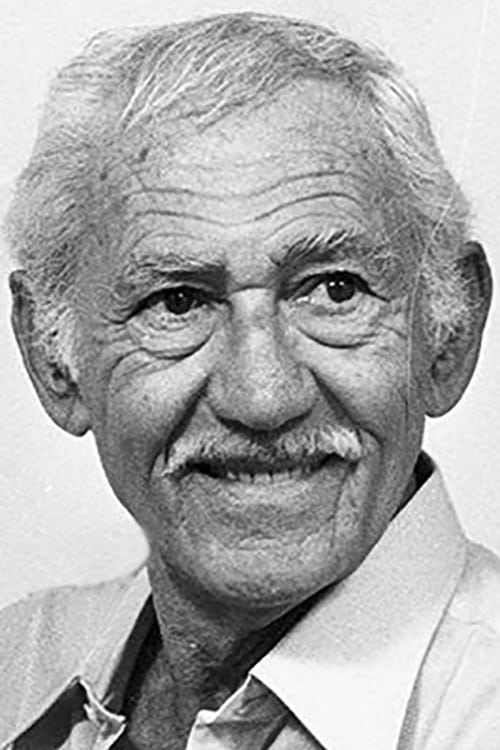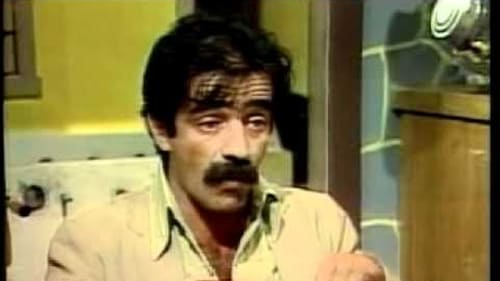
Padre Cícero
A Lebanese photographer living in Brazil in the '30s manages to film the band of Lampião, a legendary Brazilian bandit.

Tico velho
This is a remake of Brazil's first international success in the cinema world. Just as its same name predecessor was, this film is a fictional version of the story of the "cangaceiros." These were bandits who sacked towns and spread terror throughout Northeastern Brazil in the 1930s. This group of outlaws is led by Captain Galdino and his wife Maria Bonita.

Self
"Portraits and excerpts from Brazilian films from all times. Actors, directors and images that affirm cinema."

Mr Abrakadabra

Writer
The cultural differences between the several generations of the rural maracatu: an afro-indigenous ritual which originated in the sugar mills of the state of Pernambuco.

The cultural differences between the several generations of the rural maracatu: an afro-indigenous ritual which originated in the sugar mills of the state of Pernambuco.

After an extended period directing original screenplays, dos Santos returned to the creative engagement with literature that was the wellspring of his early masterpieces, offering a combinatory adaptation of five stories by the renowned Brazilian novelist João Guimarães Rosa. Openly embracing a mode of magical realism, dos Santos' celebrated film tells the story of a farming family defined by the absence of its father who abruptly abandoned his wife and children, sailing away down the river, including his son who continues to communicate with his father, speaking daily to him from the river bank. While offering an evocative vision of rural Brazil as a timeless land of mystery and solemnity, The Third Bank of the River is also bitingly satiric in the remarkable depiction of religious belief when the family moves to the city and its youngest member, a mesmerizing little girl, is revealed to be a kind of saint, capable of miraculous acts. -Harvard Film Archive


A Cat from outer-space comes to earth and befriends a Miller's Son and together they set out to defeat an evil wizard.

Coronel
Earning her living by dubbing American TV Series, a woman dreams of becoming an international Hollywood star.

Cego Elias
Geraldo Viramundo (Diogo Vilela) is a nice guy with absurd ideas. Genial and / or insane, he decides to leave her small town in Minas Gerais and win the world. Your goal is to destabilize the system and their accomplices are the prostitutes and the destitute.

Napoleão
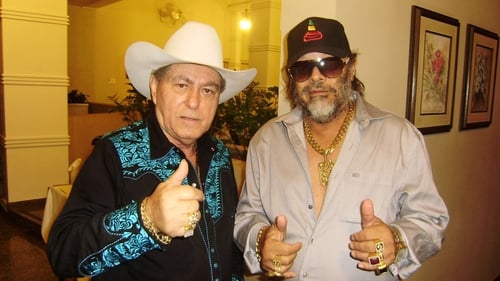
Bento
Milionário and José Rico are robbed of their money and their fans' enthusiasm. But a female truck driver is out to help them.
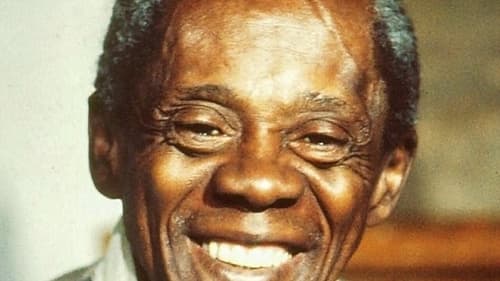
Mestre Manoel
Jubiabá is a French-Brazilian film based on the homonymous novel by Jorge Amado. The film tells the story of the interracial love between the daughter of a rich Commander and Antonio Balduíno, a rascal, fighter and famous lover from Salvador.

George
A man who works at a nuclear plant is contaminated by radioactivity. On the way to the hospital, the ambulance has an accident, and the man's head disappears. Lost and free from its body, the head goes through many adventures.

Jose
A plane crashes in the Amazon jungle, and its passengers must battle their way through cannibals, slave traders, wild animals and murderous piranha fish to safety.

Juiz
Didi, Soró and Tatu in search food and water head for the town of Oróz. On their journey they find a Scarecrow, a man in a metal vat, and later are arrested by a Lion Sheriff.

Soares
Adaptation of Graciliano Ramos's novel about his arrest and imprisonment.

Canindé
Quilombo dos Palmares was a real-life democratic society, created in Brazil in the 17th century. This incredibly elaborate (and surprisingly little-known) film traces the origins of Quilombo, which began as a community of freed slaves. The colony becomes a safe harbor for other outcasts of the world, including Indians and Jews. Ganga Zumba (Toni Tornado) becomes president of Quilombo, the first freely elected leader in the Western Hemisphere. Naturally, the ruling Portuguese want to subjugate Zumba and his followers, but the Quilombians are ready for their would-be oppressors. The end of this Brave New World is not pleasant, but the followers of Zumba and his ideals take to the hills, where they honor his memory to this day. Writer/director Carlos Diegues takes every available opportunity to compare the rise and fall of Quilombo with the state of affairs in modern-day Brazil.

A senator having contacts with illegal betting activities is killed by the man who is his right arm, who wanted to get his position. But the power structure resents this disturbance and can fall apart, specially since there's a witness.

Isidoro

O Velho
True story of Brazilian bank clerk who supplied money for the guerrilla fighting against the military dictatorship of the 70s. When he changes his disguise, he gets involved with high society, and with industrialists who were financing repression to the groups he stood for.
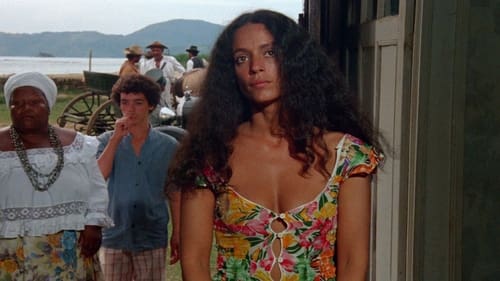
Cel. Ramiro Bastos
In 1925, Gabriela, a poor, uneducated, yet charming woman becomes cook, mistress, and then wife of Nacib, a bar owner in Ilhéus, a small Brazilian coastal town run by the local colonels.
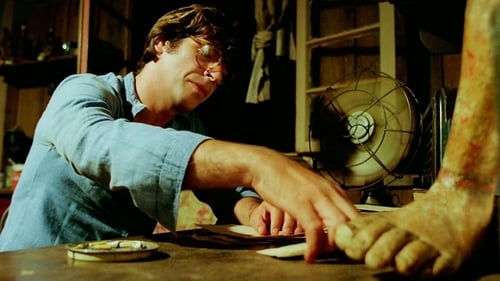
João Mentira
Pablo (Arturo Puig) receives the news that his father, who abandoned him and his family a long time ago and was thought dead, wants to see him so he can pass all his fortune to him. Pablo goes to see his father in Brazil, expecting to inherit a large sum of money, but instead, he receives from his father a treasure map, with the promise that the map will make him rich. After the father dies, Pablo decides to go to an adventure and seek the treasure, aided by the men his father choose as companionship, and by one woman faith choose for him.
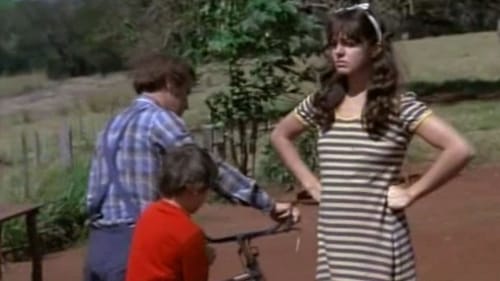
Prostitute is impregnated by a wealthy businessman. Identical twins are born: Márcio created by the father and the mother another. The latter becomes a marginal, while the first, with the death of his father, inherits fortune incalculable. Upon learning of fortune inherited by his brother, the marginal killer, and takes its place in business. Everything goes well until an employee discovers the drama.

El padre
Two coworkers decide to blackmail the corrupt demolition company they work for by setting up a fake accident.

One car failure and a long bus ride to nowhere lead to a small Brazilian country town where two groups of guys and girls meet. This coincidences change the courses of their lives as they soon mingle and passion arises among them.
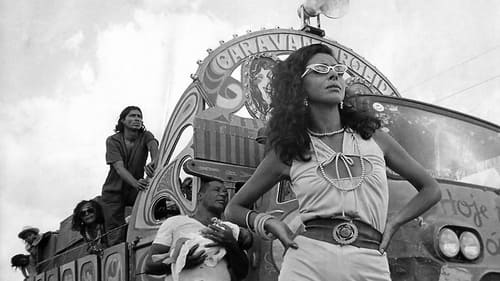
Zé da Luz
The Caravana Rolidei rolls into town with the Gypsy Lord at the mike: he does magic tricks, the erotic Salomé dances, and the mute Swallow performs feats of strength. A young accordion player is completely enamored of Salomé, and he begs to come along. The Gypsy Lord shrugs, and the accordionist and his pregnant wife, Dasdô, join the troupe.

Padre
According to an Amazonian indigenous legend, a certain insect, Anophelis sexualis, has aphrodisiac properties: one who is bitten by it will surely die if it does not have sex within two hours. Knowing this news, Hans Muller, a scientist, moves to the habitat of the insect and collects several specimens for research in his laboratory in the city of Ilha Bela, on the coast of São Paulo. There, besides the local administration and the population, there are several tourists. By an accident, the insects flee and attack the world.

Coronel Tonho
In the 20's, in the State of Piauí, Brazil, a young cowboy is used politically after killing his wife, who had been seduced by her boss and his son.

Fernão Dias
The life of Fernão Dias, a 17th century Brazilian frontiersman known as "the Emerald Hunter".

Coronel Ulisses
In the beginning of the 20th Century, in the Northeast of Brazil, one of the first Brazilian industrialists is persecuted because he refuses to sell his business to a British company.

Frei Salvador
In the early 17th century, the Dutch have occupied Bom Jesus village, the last native stronghold in the Pernambuco captaincy. An adventurer, João Fernandes Vieira, sees himself in the middle of a conflict, torn between joining his friend Mauricio de Nassau alongside the ruling Dutch and siding with his lover Ana Paes in the fight to free his homeland.
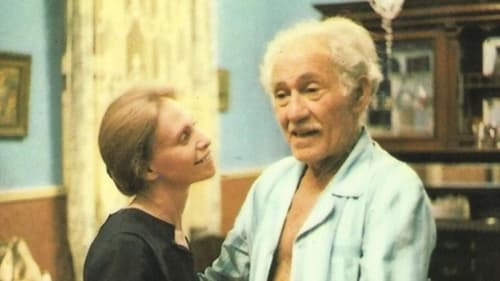
70-year-old widower living in a poor Rio de Janeiro suburb falls in love again when he finds a woman of approximately the same age.

Narrador

Jordão Magalhães, a young plastic artist from a small inland city, is hired to sculpt the statue of the local virgin patron. The model that inspires her is Verinha, with whom she maintains a loving relationship.

Ring whose previous owner was a prostitute with supernatural powers causes double personality in a young woman about to marry. After some time, her face gets disfigured, forcing her to wear a mask.

Coronel Gomes
When a prominent U.S. Nobel Laureate arrives in Salvador, Bahia, the city with the largest black population in Brazil, he stirs emotions by championing a long-forgotten local writer named Pedro Archanjo, who believed that humanity would be improved only through miscegenation.

The story of Severino, a man who tries to escape the misery and the drought prevailing in the rural backcountry of the Northeast of Brazil. He heads for Recife, passing through desert and forest regions, expecting to find a better life.

Pedro Cem

Lima
The dreams and problems of three friends: Malagueta, an inveterate gambler; Perus, former factory worker who abandoned the assembly line to earn his living at the billiards; and Bacanaço, trickster who puts on chic airs, always dreaming of performing the ultimate big swindle.

Major Batista

Coronel Querino
In the 1930s, a blacksmith is accused of murdering his wife and becomes a hero and political leader.

Antônio
Man leaves his family behind and moves to Nova Iguaçu, a poor and violent city in the outskirts of Rio de Janeiro. He tries to rebuild his life, but falls in love with a woman who despises him, which drives him mad.

Totônio Pacheco
Based on the novel "Totônio Pacheco", written by João Alphonsus. At the time of the decadence of the great farms of Minas Gerais, Totônio is a symbol of the golden age of state farms: old and accustomed to having all his wills obeyed. However, after moving to his son's home because of his wife's death and the resulting loneliness, he realizes that he has lost his job as a boss and is struggling to regain his prestige by moving to a brothel.

Padre Cícero Romão

Albino
Comedy anthology in three segments, each one involving beautiful and uninhibited women.

Januário
Pirola is a poor guy who lives with his son Ze in a hovel on his boss's farm. One day, Pirola is surprised by the visit of an old friend who, feeling that the hour of his death approaches, decides to present him with a bag full of money.

Joãozinho
Many stories revolving around a poor couple who, in spite of hating each other, still live together under the same roof.

As revenge against the big landowner who killed his brother, a convict escapes and rapts the man's daughter.

Homossexual
The painter Tino, in professional and political crisis, receives a telegram from his mother-in-law, Selma, announcing her return from Europe. After his wife's death, Tino continues living with Selma, with whom he had ambiguous relations, which he now wants to sever. Weak at this impossible love, he asks the maid Enedina to lock him in his room. There, he revives memories through letters, notes and photographs. Selma's son João is waiting for her at the airport and dreams of loving fulfillment in his own mother's arms.

Filmmaker José Mojica Marins travels to spend Christmas with friends in a small farm, where they spend leisure time while Mojica writes the story for his next film. However, he observes eerie things in the house, with his friends being possessed one by one by some supernatural evil force.

Cara de Bronze
Unable to endure the idea that he would go without punishment, a criminal's victim chases him the length and breadth of Brazil for a showdown.

Severiano
An ubiquitous folk singer narrates the tale of a young boy, who apparently becomes immune to gunfire after his mother arranges for him to have an amulet bearing Ogum's blessings. As time goes by, he becomes a valuable member of a mobster's hit-team, but ends up joining a group of people who resist his original employers.

Helena, a criminal's daughter, was raised in a boarding school. When the priest who was her teacher is killed by a group of outlaws, Helena and her female friends assemble in a strange gang of female bandits, wandering Northeast Brazil and forcing the men they capture to have sex with them.
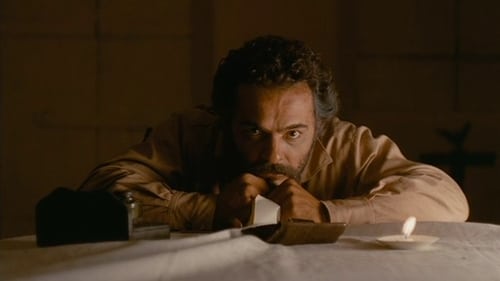
Padre Brito
The story of Paulo Honório, a poor ploughman who becomes a rich farmer. Obsessed by his desire to get even richer, he doesn't pay much attention to his wife, Madalena, a teacher who reacts against his tyrannical ways.
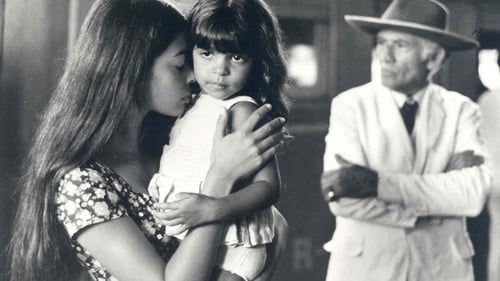
João
Against all advice, a destitute Brazilian old man marries a nineteen-year-old girl. Because he can’t give her any children, he moves to the interior to make money, so she will at least have a good life. When he returns, he is told she has a three-year-old daughter. He buys himself a knife. Suspense movie with a combination of ethnography, adventure and dramatic action, based on a poem by the Brazilian writer Odylo Costa Filho.

Paulo, an engineer, adopts shoe-shining teenage boy Darci, and slowly realizes he has more than just paternal feelings for him. Many twists follow, regarding Darci's true identity.
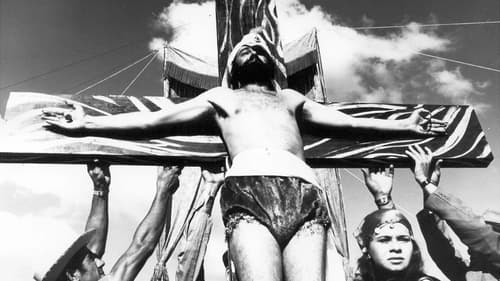
Padre
The story of a fakir who works in a decadent circus. He and his colleagues do weirder numbers each day to attract audience, and warrant their survival. The numbers resemble a horror-show and they get marginalized. Through fable and allegory, reality turns stronger and stronger, and more absurd.

Pai Velho
In 1913, in the state of Santa Catarina, Brazil, the Government gives some lands to a foreign railway company, giving rise to revolt by the former owners of the land. The episode became known as Guerra dos Pelados.
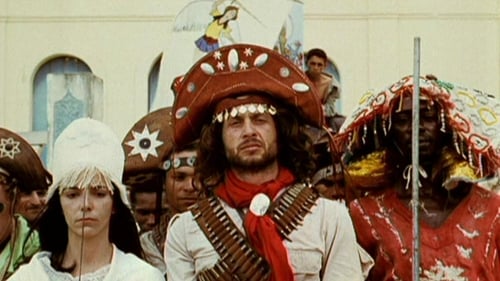
Coronel Horácio
A new incarnation of Cangaceiro bandits, led by Coirana, has risen in the badlands. A blind landowner hires Antônio to wipe out his old nemesis. Yet after besting Coirana and accompanying the dying man to his mountain hideout, Antônio is moved by the plight of the Cangaceiro’s followers. The troubled hitman turns revolutionary, his gun and machete aimed towards his former masters.

Coronel Justino
After robbing and massacring a village, the head of a gang of bandits, Captain Jagunço, kidnaps Flô, Mayor Cisso's wife and tortures her.

Domingos

Velho Barbosa
During a flight, passengers confront their aspirations, frustrations, fears, wishes and fears, mixing up reality and fiction.

Western spoof. Depicts the conflict between the leader of a gang of country bandits and his former protégé, now a police officer.

Salustiano
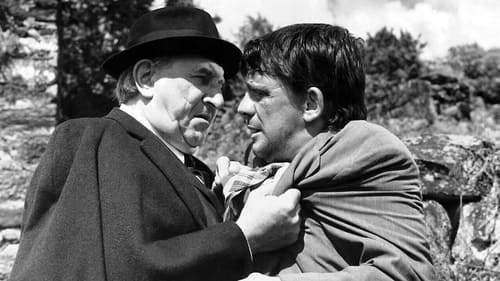
Padre Estêvão
Delfino, a quiet man who lives in Congonhas do Campo, a small historical town in the state of Minas Gerais, Brazil, is urged by his friend to steal the image of the Madona de Cedro (the Cedar Madonna), sculpted by Aleijadinho in the 18th century, from the town sanctuary.

(voice)
A debate about the agrarian reform in Brazil, in free and poetic form, showing the countrymen's struggles and hardships, and rural unionism issues after the military coup, kind of a nonlinear interpretation of Mário Chamie's poem "Lavra-Lavra".

In the village of Leva-e-Traz, the discovery of a oil field is responsible for a mass evasion of the townspeople. Left are the old and incapable for the extraction job. When the local priest announces he, too, is leaving the town, Satan emerge thrilled with the chance of overtaking the place.

Film that includes three short films by different authors about love: "O pacto" by Eduardo Coutinho, "Terrible Night" by Rodolfo Kuhn, and "Magic World" by Helvio Soto.
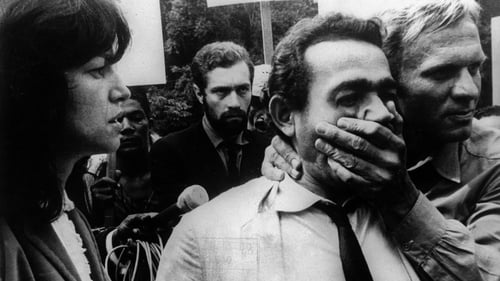
Padre Gil
Eldorado, a fictitious country in America, is sparkling with the internal struggle for political power. In the eye of this social convulsion, the jaded journalist Paulo Martins opposes two equally corrupt political candidates: a pseudopopulist and a conservative. In this context, Paulo is torn between the madness of the elite and the blind submission of the masses. But, in this complex tropical reality, nothing really is what it seems to be.

Originally produced for German TV, Improvised and Purposeful is a firsthand look at the "Cinema Novo" movement (otherwise known as the 'Brazilian New Wave'). Director Joaquim Pedro de Andrade focuses on six Cinema Novo filmmakers working in Rio in 1967.
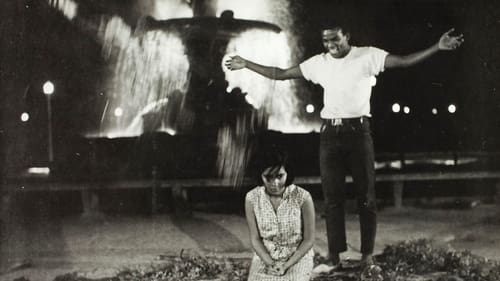
Lourival
In search of a better life, Luzia leaves the Northeast of Brazil and goes to Rio de Janeiro, looking for her fiance who went first to pave their way. Alone in the Marvelous City, she is forced to accept the friendship and protection of Calunga and, later, the company of Inácio.

Joãozinho Bem-Bem
Augusto Matraga is a violent agressive farmer who, after being betrayed by his wife and trapped by several enemies, is bitten up and left for dead, being rescued by a couple of humble small farmers who nurse him for a long time until he is well again. Influenced by the couple, Matraga starts a long penitent life while waiting for his hour and chance to payback, starting a fight between his violent nature, his hidden desire of vengeance and the mysticism and goodness which is also part of him.

Cowboy Riobaldo is attracted to same sex Diadorim, not knowing that "he" is a girl dressed in man's clothes. After Diadorim's father is killed, she swears revenge, being joined by Riobaldo in this mission.
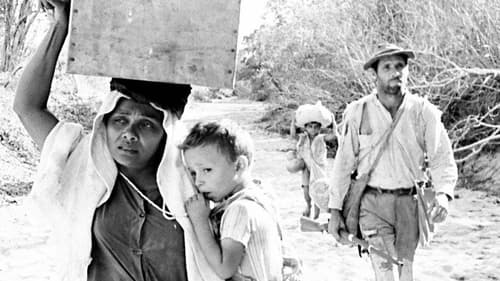
Fazendeiro
In vivid images, the documentary-like story of a drover and his family in the northern badlands of Brazil during the drought. A family in the search of new hope and destiny.

Nitan
In a company trading maté, workers are treated as slaves. Some of them try to escape, but those who are caught suffer severe punishments.
